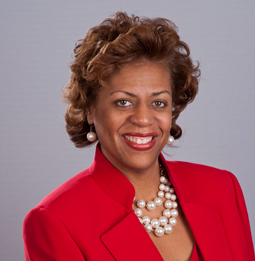In a December 2 Chronicle for Higher Education article, Scott Carlson questioned whether declining public support for programs that increase access to higher education is linked to ambivalence about racial and ethnic diversity at our nation’s universities.
It’s a provocative issue, and one that deserves serious examination. In his article, Carlson walks through the history of programs that expanded college access and how they have slowly declined. He argues that adoption of the post- World War II G.I. bill was the zenith of our nation’s investment in its citizens, giving millions of veterans access to a college education. But even the impact of that highly-successful program was not race-neutral. Black veterans didn’t fully benefit from the G.I. bill because 1940s- and 1950s-era university campuses were often shut off to students of color and small historically black colleges and university could not accommodate large waves of black veterans. As a result, while the G.I. bill created upward social mobility for members of white ethnic groups such as Italian Americans, black educational attainment remained largely unchanged.
Sadly, support for the principle that access to higher education is a public good has significantly waned since those days. When states like California heavily invested in higher education to make college affordable and accessible in the 1960s and 1970s, strong backlash emerged and it persists to this day. In recent decades, court cases have challenged policies that smoothed the way for students of color to attend and thrive at college and at the same time, state legislatures all over the nation have cut funding for higher education, forcing non-affluent students to incur tremendous debt loads. The problem is especially acute in Michigan, where according to a 2016 report from the Young Invincibles, Michigan students and their families are responsible for 70% of college costs, the seventh largest tuition burden in America.
I serve on the Board of Governors at Wayne State University, which is one of only four public universities in Michigan whose state appropriation has still not been restored to its 2011 funding level after Gov. Rick Snyder’s massive 15 percent cut to higher education that year. It bears mentioning that Wayne State University has the most racially diverse and the least affluent undergraduate student body of any public four-year university in Michigan.
America is a nation that was founded upon lofty ideals of opportunity and equality for its citizens. The reality, however, is that many of our nation’s institutions – including colleges and universities- were designed to explicitly give a leg up to wealthy, white, male citizens. However, mainstream political discussions about persistent poverty in communities of color rarely involve a serious look at the impact of historical and present-day institutional barriers to black and brown advancement.
The bottom line is this: With the growth of the knowledge economy, a college education will be increasingly vital for career and life success. The more we narrow the path to college, the more we betray our American ideals.







